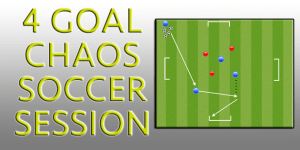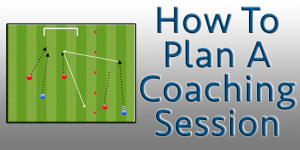Coaching is more than just guiding athletes through training sessions; it’s about empowering them to reach their full potential and achieve greatness. As a coach, your role is to inspire, motivate, and instill confidence in your athletes. In this article, we’ll explore ten essential coaching techniques that will help you create a supportive environment, foster growth, and empower your athletes to excel in their chosen sport.
1. Effective Communication
Communication is the cornerstone of successful coaching. Establish an open line of dialogue with your athletes, actively listen to their concerns, and provide constructive feedback. Tailor your coaching style to each individual’s needs, ensuring they feel understood and supported.
2. Goal Setting and Planning
Work with your athletes to set clear, achievable goals and create a roadmap for their progress. Break down larger objectives into smaller, manageable milestones. Regularly review and adjust these goals to keep athletes motivated and focused on continuous improvement.
3. Positive Reinforcement
Recognize and celebrate your athletes’ successes, both big and small. Positive reinforcement boosts confidence, encourages perseverance, and reinforces desired behaviors. Acknowledge their efforts, improvements, and achievements to nurture a growth mindset.
4. Constructive Criticism
Offer constructive criticism in a supportive manner. Focus on specific areas for improvement while highlighting strengths. Emphasize the importance of learning from mistakes and encourage athletes to view challenges as opportunities for growth.
5. Mindfulness and Mental Training
Introduce mindfulness and mental training techniques to help athletes manage stress, enhance focus, and develop mental resilience. Teach them how to stay present during competitions and practice, fostering a strong mental game.
6. Individualized Coaching Plans
Recognize that each athlete has unique strengths and weaknesses. Develop individualized coaching plans that cater to their specific needs and goals. This personalized approach will make athletes feel valued and supported.
7. Team Building and Cohesion
Encourage a positive team culture that promotes cooperation and camaraderie. Organize team-building activities, foster a sense of belonging, and promote the idea that each athlete’s success contributes to the team’s overall achievements.
8. Time Management and Work-Life Balance
Teach your athletes the importance of time management and maintaining a healthy work-life balance. Help them find ways to balance their athletic pursuits with other aspects of their lives, such as academics, family, and social activities.
9. Visualization and Mental Imagery
Introduce visualization and mental imagery techniques to help athletes envision success. Encourage them to mentally rehearse their performances and outcomes, enhancing their confidence and preparation.
10. Role Modeling and Inspiration
Lead by example and be a positive role model for your athletes. Demonstrate dedication, discipline, and a strong work ethic. Share inspiring stories of athletes who have overcome challenges and achieved greatness, motivating your athletes to aspire for the same.
As a coach, your influence extends far beyond the playing field. By implementing these ten essential coaching techniques, you can create a powerful and nurturing environment that empowers athletes to thrive. Effective communication, goal setting, positive reinforcement, and individualized coaching plans are just some of the building blocks for developing confident, motivated, and resilient athletes. Embrace the role of a mentor and guide, and watch your athletes unlock their true potential, both in sports and in life. Remember, your support and encouragement will shape not only their athletic achievements but also their personal growth and lifelong success.

















